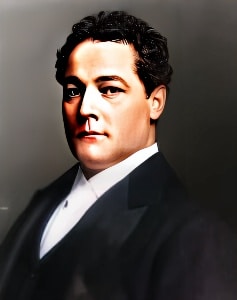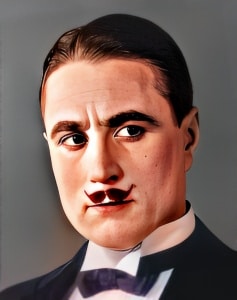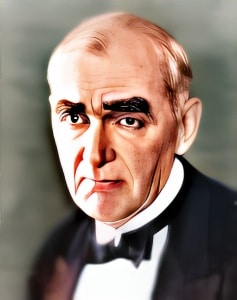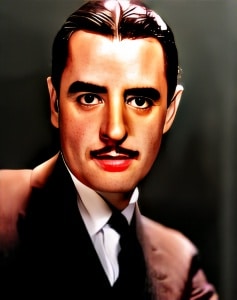 Gustav Botz (1889-1959) was a German actor who made significant contributions to both silent and sound cinema during the early 20th century.
Gustav Botz (1889-1959) was a German actor who made significant contributions to both silent and sound cinema during the early 20th century.
Known for his versatility as a character actor, he portrayed a wide range of roles, making him a memorable figure in the history of German cinema.
Gustav Botz was born on November 30, 1889, in Berlin, Germany. He began his career in the theater, performing on various stages in Germany during the late 19th and early 20th centuries. His early experience in the theater provided him with a strong foundation for his transition to the world of cinema.
Botz’s breakthrough in film came during the silent film era, and he appeared in numerous silent films during the 1910s and 1920s. His distinctive appearance and acting style made him a sought-after character actor. He often played supporting roles, showcasing his ability to convey depth and authenticity to the characters he portrayed.
One of his notable silent film roles was in “ Nosferatu” (1922), directed by F.W. Murnau. The film, an unauthorized adaptation of Bram Stoker’s “Dracula,” featured Botz in a supporting role. His performance in the film added to its overall atmosphere of dread and suspense, contributing to the enduring legacy of “ Nosferatu.”
As the transition from silent films to sound films took place in the late 1920s and early 1930s, Gustav Botz successfully adapted to the new medium. His deep, resonant voice was an asset in the sound era, and he continued to portray a variety of roles in early sound films. His ability to excel in the evolving cinematic landscape demonstrated his adaptability as an actor.
Botz’s career extended into the 1930s, and he continued to contribute his unique presence to German cinema. His ability to convey authenticity and depth in the characters he portrayed made him a respected and valued figure in the industry. He appeared in a wide range of film genres, including dramas, comedies, and historical films.
While Gustav Botz may not have achieved the same level of international recognition as some of his contemporaries, his contributions to the world of cinema were significant. His work in “ Nosferatu” and other silent and sound films allowed him to leave a lasting mark on the history of German cinema, particularly in the Expressionist and horror genres.
Botz’s unique style and talent as a character actor, combined with his versatility, made him an important figure in early German cinema. His legacy endures through his cinematic contributions, which added depth and authenticity to the characters he portrayed. He demonstrated the power of silent and sound film in conveying complex emotions and captivating the imagination of audiences.
Gustav Botz’s work continues to be celebrated, particularly his role in “ Nosferatu,” which remains a classic of silent cinema. His performances, both on the stage and on screen, left an indelible mark on the history of German film, and his enduring legacy as an actor contributes to the rich tapestry of early cinema.
Loading live eBay listings...




